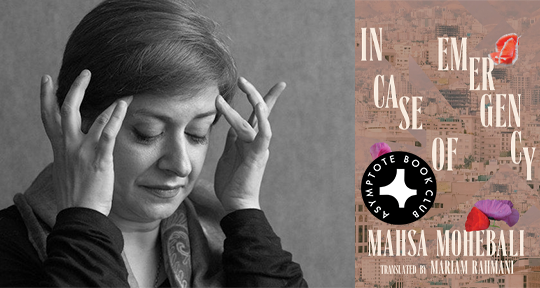When the cult writer Izumi Suzuki debuted in the English language with stunning, subversive short stories of counterculture and fantasy, critics and readers alike were astounded by her utterly individual voice, speaking candidly about emotional heights and lows, womanhood, and the chaotic world of drugs, music, and dreams in which her narrators found themselves. Now, we are given the chance to learn more from Suzuki’s own tumultuous life in the newly published autofiction, Set My Heart on Fire, written in the same mesmerizing, phantasmagoric tone of brusqueness and vulnerability that gave reality to her imagination. As our November Book Club selection, this novel enlivens the sharp mind, loves, and frivolities of a woman who sought and fought for her individuality, as well as the decades in which Japan was also undergoing changes of both revel and devastation.
The Asymptote Book Club aspires to bring the best in translated fiction every month to readers around the world. You can sign up to receive next month’s selection on our website for as little as USD20 per book; once you’re a member, join our Facebook group for exclusive book club discussions and receive invitations to our members-only Zoom interviews with the author or the translator of each title.
Set My Heart on Fire by Izumi Suzuki, translated from the Japanese by Helen O’Horan, Verso, November 2024
Strung-out bass, clunky keys, psychedelic vocals. Abundant patterns, colors, and substances. Dancing, libating, popping, fucking. The groovy, knocked-out backdrop to 1960s Japan. In Honmoku, a district in Yokohama known for its American military base, Japanese youth had reveled in the abundance of American-influenced music, rock and roll, and rebellion, fueled by the financial prosperity of the “Golden Sixties” and its reigning youthful, nonconformist spirit. Izumi Suzuki, a prolific science fiction writer in the late 1970s, moved to Tokyo in 1969 with a year remaining to soak in that rhythm, as in the following decade, Japan would face the first hint of its coming economic breakdown as GDP growth slowed significantly during the global oil crisis. The former revelers, strung out and blissed out, were suddenly thrust into a decade of fading glory and no direction.
Izumi Suzuki’s latest work in English, translated by British linguist Helen O’Horan, is a novel titled Set My Heart on Fire—a notable deviation from the original title’s reference to The Doors’ “Light My Fire.” Song-inspired titles are a near-constant in Suzuki’s oeuvre, and her first novel in translation is no exception, with each chapter taking its name from a track from the sixties. While the references are upheld throughout much of the translation, O’Horan’s choice to alter the title better reflects the broader, underlying sense of desperation—for a dying age, a lost youth—and self-destruction that runs through the novel. READ MORE…


